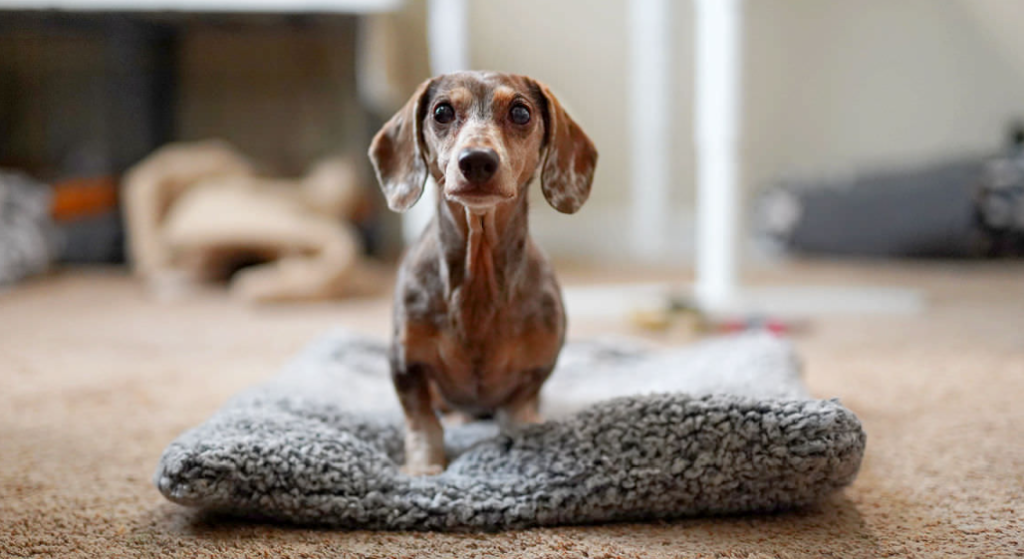Dachshunds, with their distinctive elongated bodies and playful personalities, are beloved companions for many dog lovers. However, like any breed, they can experience anxiety. In this article, we’ll delve into the world of Dachshund anxiety, explore its causes, and symptoms, and offer practical tips to help your furry friend cope.

Why are Dachshunds prone to anxiety?

- Pack Animals: Dachshunds have a strong pack mentality. They thrive on companionship and love being around people or other dogs. When separated from their pack (i.e., you), they can develop mild to severe anxiety.
- Hard-Wired Tendencies: These little sausage dogs were originally bred to hunt in packs. Their tendency to become anxious when separated from their pack is hard-wired into their genetic makeup. Many Dachshund owners keep them in pairs to mitigate this anxiety.
- High Energy and Intelligence: Dachshunds are energetic and intelligent. If they don’t receive sufficient exercise and mental stimulation, they can become restless and anxious.
Recognizing Dachshund Anxiety
It’s crucial not to ignore signs of anxiety in your Dachshund. Early intervention can prevent mild anxiety from escalating into a serious problem. Look out for these behavioral and body language cues:

- Nuisance Barking: Especially when you’re not home.
- Panting & Pacing: Even when it is not hot.
- Shivering
- Running Away or Cowering
- Destructive Behavior: Digging, escaping, or destroying furniture.
- Self-Harm: Excessive licking or chewing.
- Loss of Appetite
- Urinating More Frequently
- Inability to Settle: Restlessness and inability to relax.
Types of Anxiety in Dachshunds

- Separation Anxiety: is the most common type. Dachshunds feel distressed when left alone. Training them to tolerate solitude gradually is essential.
- Fear-Based Anxiety: Triggered by specific situations or objects. Desensitization and positive reinforcement can help.
- Health and Age-Related Anxiety: Changes in routine, illness, or aging can cause anxiety. Consistent care and a stable environment are crucial.
- History-Based Anxiety: Linked to past traumatic experiences. Patience and gentle handling are essential.
- Generalized Anxiety: Sometimes, anxiety has no obvious cause. Calming routines, soothing environments, and professional guidance can assist.
Tips to Help Your Anxious Dachshund

- Positive Reinforcement: Reward calm behavior and gradually increase separation time.
- Create a Safe Space: Provide a cozy den or crate where your Dachshund feels secure.
- Routine: Stick to a consistent daily routine.
- Exercise and Mental Stimulation: Engage your Dachshund’s mind and body.
- Desensitization: Gradually expose your dog to anxiety triggers.
- Professional Help: Consult a veterinarian or animal behaviorist if anxiety persists.
Remember, your Dachshund relies on you for comfort and reassurance. With patience, understanding, and love, you can help your anxious pup navigate the world with confidence.

